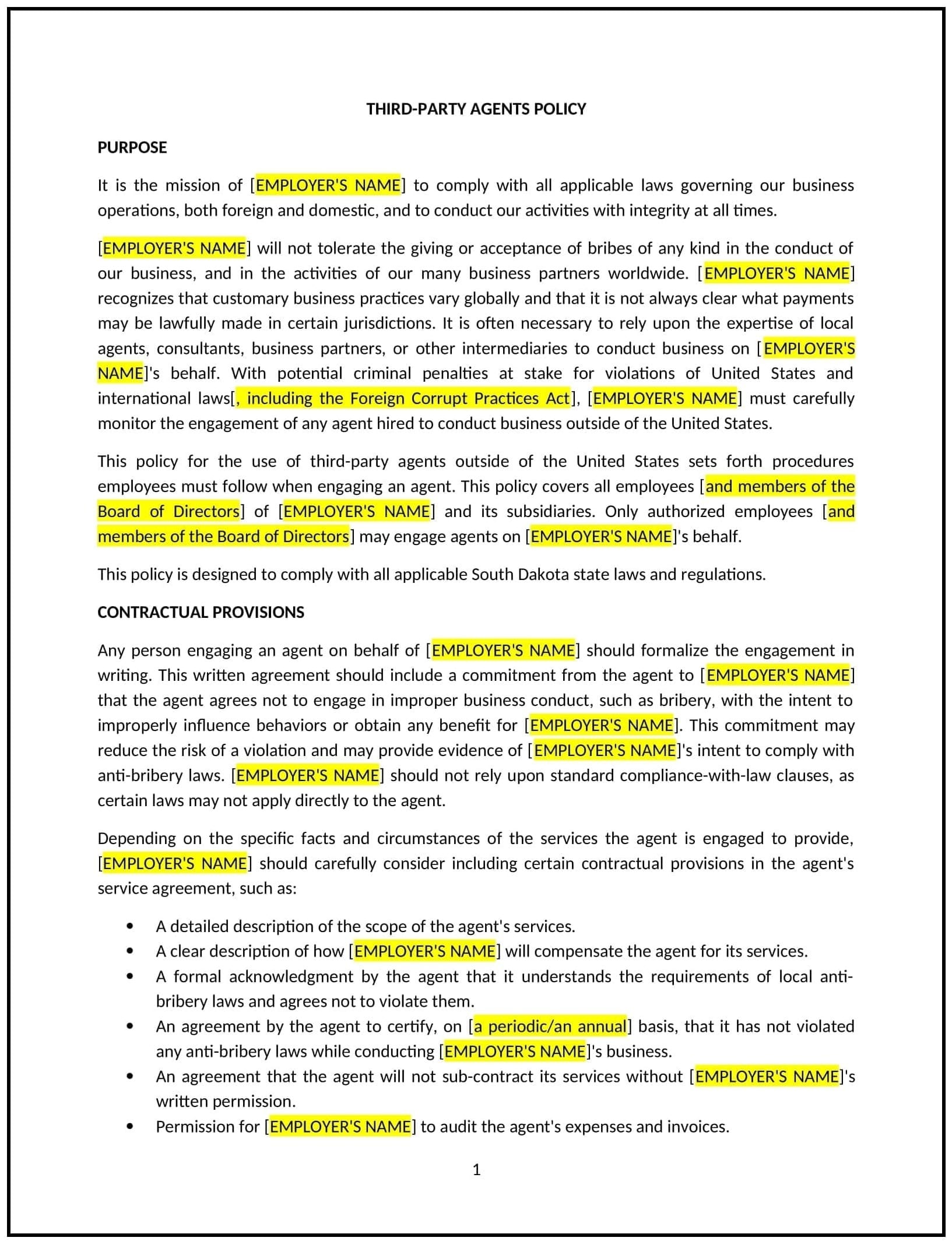Third-party agents policy (South Dakota): Free template
Got contracts to review? While you're here for policies, let Cobrief make contract review effortless—start your free review now.

Customize this template for free
Third-party agents policy (South Dakota)
This third-party agents policy is designed to help South Dakota businesses establish guidelines for working with external vendors, contractors, and consultants. It outlines expectations for third-party conduct, confidentiality, and compliance with company standards.
By adopting this policy, businesses can ensure that third-party agents align with their values, protect sensitive information, and maintain a professional relationship.
How to use this third-party agents policy (South Dakota)
- Define third-party agents: Specify who qualifies as a third-party agent, such as vendors, contractors, or consultants.
- Set expectations: Outline the standards of conduct, performance, and confidentiality expected from third-party agents.
- Address compliance: Include requirements for third-party agents to comply with company policies, industry regulations, and legal standards.
- Establish communication protocols: Provide guidelines for how third-party agents should communicate with the business and its employees.
- Include termination clauses: Specify the conditions under which a relationship with a third-party agent may be terminated.
- Train internal teams: Educate employees on how to work effectively with third-party agents and enforce the policy.
- Review and update: Assess the policy annually to ensure it aligns with evolving business needs and industry standards.
Benefits of using this third-party agents policy (South Dakota)
This policy offers several advantages for South Dakota businesses:
- Protects sensitive information: Ensures third-party agents handle confidential data responsibly and in compliance with company standards.
- Maintains professionalism: Sets clear expectations for third-party conduct, fostering a productive and respectful relationship.
- Aligns with business values: Ensures third-party agents adhere to the company’s mission, vision, and ethical standards.
- Reduces risks: Helps mitigate legal, financial, and reputational risks associated with third-party relationships.
- Enhances accountability: Provides a framework for holding third-party agents accountable for their actions and performance.
Tips for using this third-party agents policy (South Dakota)
- Communicate the policy: Share the policy with third-party agents during onboarding and include it in contracts or agreements.
- Provide training: Educate internal teams on how to enforce the policy and work effectively with third-party agents.
- Monitor compliance: Regularly review third-party performance and adherence to the policy.
- Address issues promptly: Take corrective action if a third-party agent violates the policy or fails to meet expectations.
- Update regularly: Review the policy annually to ensure it remains relevant and effective.